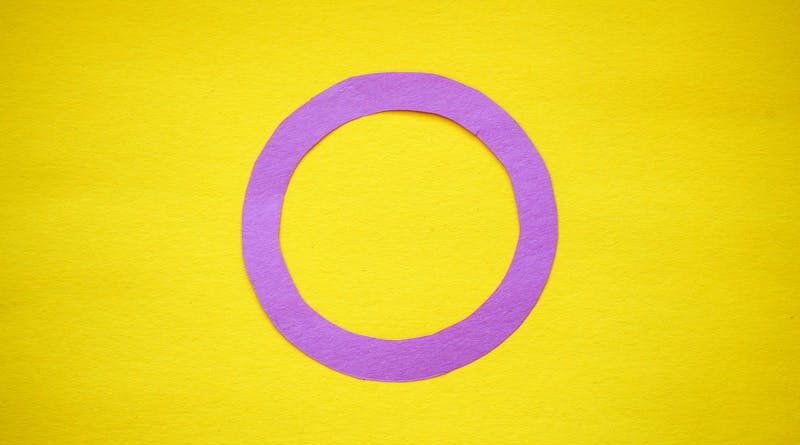Being intersex is completely normal but we act like it’s not – let’s change that
Intersex is an umbrella term for people who are born with reproductive organs and/or genitals that don’t fit neatly into the boxes of ‘male’ or ‘female’. This covers a huge variety of situations, and can also include chromosomes (bundles of genes), hormones or gonads. For example, someone may have a larger clitoris or a vagina without the opening in the usual place. Or someone may have a womb while also having testicles inside their body.
To be clear, we’re talking about biological sex, and not gender or sexuality. Intersex people can have any gender and sexuality, just like everyone else! (Note: some people prefer the term differences in sex development (DSD) instead of the term intersex).
Is being intersex common?
One myth is that it’s rare. That’s not true – around 1 in 2,000 people are born intersex. So there are more people born intersex than you might think. And this isn’t new, this has been around for a very long time.
Is being intersex normal?
YES, YES AND YES! It’s completely normal. You may not have heard of it because we’re often taught there are only two biological sexes: male and female. But biological sex actually exists on a spectrum. While most people fall into the bracket of being either female or male, not everyone does.
Because we don’t talk about it, this can lead to body shaming and people feeling uncomfortable in their bodies. But intersex people don’t need to be fixed. They’re perfect the way they are!
What happens when people are born intersex?
Doctors usually decide whether the baby’s genitalia looks more female or male, and then they perform “gender normalising surgery”. This surgery is irreversible and can lead to psychological trauma, infertility, and decreased sexual function later in life.
Intersex activism
Everyone deserves to have control over their own bodies. But often intersex people are denied this right. The United Nations recommends assigning the child’s sex WITHOUT conducting surgery. When the child is old enough they can decide whether they want surgery or not. Listen to intersex activists Anick Soni, Maria Tridas and Jonathan Leggette who share their stories of what it means to be intersex.
If you want to learn more about intersex there are plenty of resources such as InterACT Youth and local support groups for intersex people. Let’s increase intersex visibility by talking about it and normalising it. Intersex bodies need to be celebrated!
Other support
- Planned Parenthood – What’s intersex?
- Amnesty International – It’s Intersex Awareness Day: Here are 5 myths we need to shatter
- BBC Radio 1 – The Intersex Diaries
Read more
Last Reviewed 28 July 2022
Image Credit: Katie Rainbow 🏳️🌈 via Pexels



